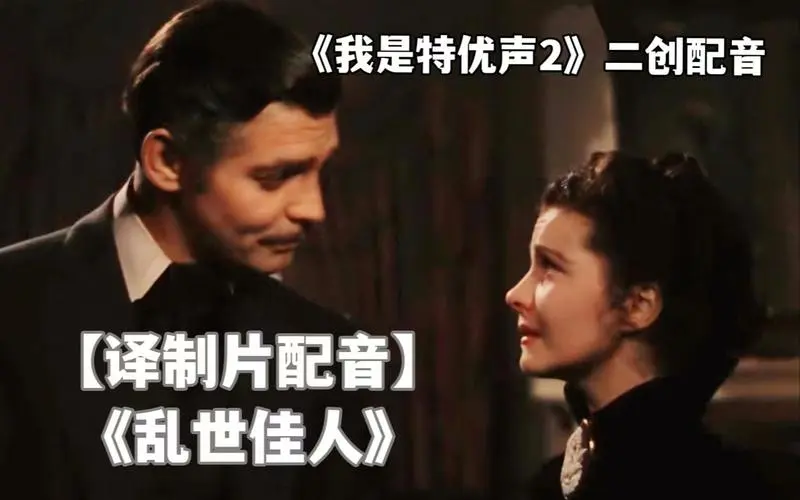How to avoid "transliteration" in Chinese dubbing films?
How to avoid "transliteration" in Chinese dubbing films?
I don't see many old translation productions. The most antique in my impression is the classic translation productions of Shanghai Film Studio. With basic aesthetic and recognition abilities, I hate the Chinese dubbing of CCTV's eight Korean dramas. Every day, there is a family ethics play of foot binding. The ups and downs of Korean dramas on TV are really annoying.
Recall the feeling after listening at that time and make a brief summary. The causes of hearing discomfort should be:
1. After the Korean, English and Japanese scripts are translated into Chinese, the number of general words is less than that of the source language, resulting in insufficient Chinese dubbing mouths, that is, the number of lines expressed at an appropriate speed is significantly lower than the number of words expressed in the performance of the actors. If the script cannot be changed, the Chinese dubber should lengthen each word so that the mouth can be opened, closed and synchronized. On the other hand, they should consider eating facial expressions. A word will lengthen the voice and make a turning sound, which sounds like singing. On the whole, the procrastination and stickiness of words are like, unlike the conversation in daily life, unreal. Generally speaking, in order to reduce the production cost, the script translation is completed by an outsourcing agency, the script is taken back, and then the script is rewritten into Chinese dubbing script by the director. A good Chinese dubbing script should follow the original meaning of the words as much as possible, and the number of words in the lines should be the same as the number of actors' mouths in the picture. The Chinese script of the big production film will be deliberated again and again, but after a large number of pheasant films entered the mainland market, the post production level is really different, and the Chinese dubbing script itself is not good.
2. The voice of the Chinese dubbing staff is undulating and cadenced. I think this is the core feature of translational production. In the above-mentioned Korean dramas on family ethics, the Chinese dubbing of a young woman is particularly characterized by the Chinese dubbing of nine bends and eighteen bends. In fact, the woman's voice and her lines seem to be trying to show the beauty of her voice. For example, Mom, come and have dinner with us. The first mother, Kuaihe and the meal will naturally form three small peaks in the ups and downs. Each of her lines is broken into groups according to several words, and the first word of each group is stressed. This is simply a way to recite poems, and I think it is also a typical feature of translational production. It is not ruled out that these Chinese dubbers themselves have the basis of stage performance, or they were originally dubbed in Chinese for animation and advertising. The initial style of people is exaggerated, undulating and heavy pronunciation. But from an objective perspective, if the effect of Chinese dubbing is superficial and modal, it is divorced from the original personality of the characters.
3. Homogeneous timbre. Although this is suspected to be irrelevant, it is indeed one of the sources of the strong translation flavor of translated movies that I have always believed. In movies, the good and evil, beautiful, ugly and other people in TV plays open their mouths in Mandarin. The handsome man's face is matched with a small voice, and the beautiful woman's face is matched with the voice of Dan Jiao. The role of the middle-aged and elderly is to suppress the voice of Xiaosheng and Dan Jiao. Sometimes, even if different Chinese dubbers perform, their timbre and the host's voice will still lead to low recognition of Chinese dubbing roles. Imperfect timbres are not beautiful, but beautiful timbres are always the same; The nonstandard Putonghua has its own nonstandard, but the host voice is always the same. Only the beautiful and standard way of speaking can speak for thousands of characters swaying in the play, which really breaks the beauty of the world!
On the Internet, it is difficult for movies and TV plays to undertake the heavy mission of cultural communication. Originally, this is a carrier to express the personal wishes of creators. If the public is entertained by the way, the dissemination of culture is only a side effect. Therefore, I do not agree with the above respondents who said that they would like the beauty of the rhythm of the source language. Senior Chinese dubbing seniors have repeatedly corrected us, don't be beautiful, don't rhyme others, you see what others say, you, tell me!
Statement: This article is original and partially reproduced. If reproduced, please indicate the source. I am the minor editor of Voices100 full language self-service live Chinese dubbing network
Related recommendations


 公安备案号:44030702004751
公安备案号:44030702004751